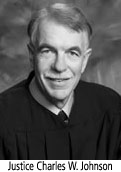7/21/2008
Washington: Police May Not Arrest Car Passengers Based on SmellWashington state Supreme Court rules that the arrest and search of vehicle occupants cannot be based solely on smell.

The Washington state Supreme Court ruled last Thursday that police may not arrest all occupants of an automobile merely because it smells of marijuana. The case began on April 6, 2006 while Lacee Hurley was driving with passenger Jeremy Grande. State Trooper Brent Hanger knew both Hurley and Grande and decided to pull over their vehicle, claiming Hurley's window tinting was too dark. Hurley became angry and claimed harassment. Hanger responded by saying that he smelled marijuana and proceeded to arrest, handcuff and search Grande and Hurley. Hanger then found a small amount of marijuana and a pipe on Grande and the remains of a joint in the car's ashtray.
Lower courts split on whether Grande's initial arrest was lawful. At issue was whether police could arrest a group without probable cause that each particular member of the group had been involved in the suspected crime. The supreme court came down on the side of maintaining the importance of individualized suspicion.
"Each individual possesses the right to privacy, meaning that person has the right to be left alone by police unless there is probable cause based on objective facts that the person is committing a crime," Justice Charles W. Johnson wrote for the unanimous court. "In other settings, we have concluded that where officers do not have anything to independently connect an individual to illegal activity, no probable cause exists and an arrest or search of that person is invalid under article I, section 7 [of the state constitution]."
This line of thought ran contrary to a 1979 state appeals court case, Washington v. Hammond, which specifically ruled that the smell of marijuana in the confined space of an automobile constituted sufficient probable cause and individualized suspicion to arrest all the occupants of a vehicle. The high court discarded that ruling.
"The Constitution's protections against illegal search and seizure are possessed individually," Johnson wrote, citing the US Supreme Court case Ybarra v. Illinois. "Because Hammond's holding is at odds with the privacy principles articulated in Ybarra and under our state constitution, Hammond was decided incorrectly and is overruled."
The high court made clear, however, that the odor emanating from the car was sufficient grounds for a search of the vehicle. The officer must articulate a connection between what he finds in such a search with the occupants before attempting an arrest.
"Unless there is specific evidence pinpointing the crime on a person, that person has a right to their own privacy and constitutional protection against police searches and seizures," the court concluded.
The court ordered that the evidence found after Grande's unlawful arrest be suppressed. A full copy of the court ruling is available in a 125k PDF file at the source link below.


